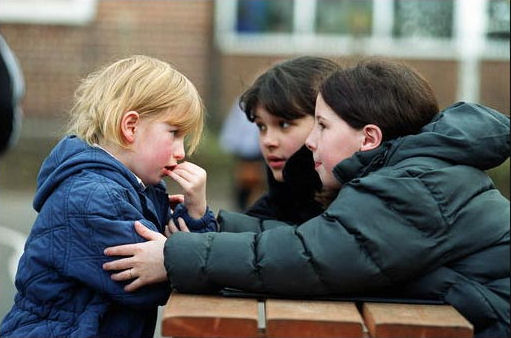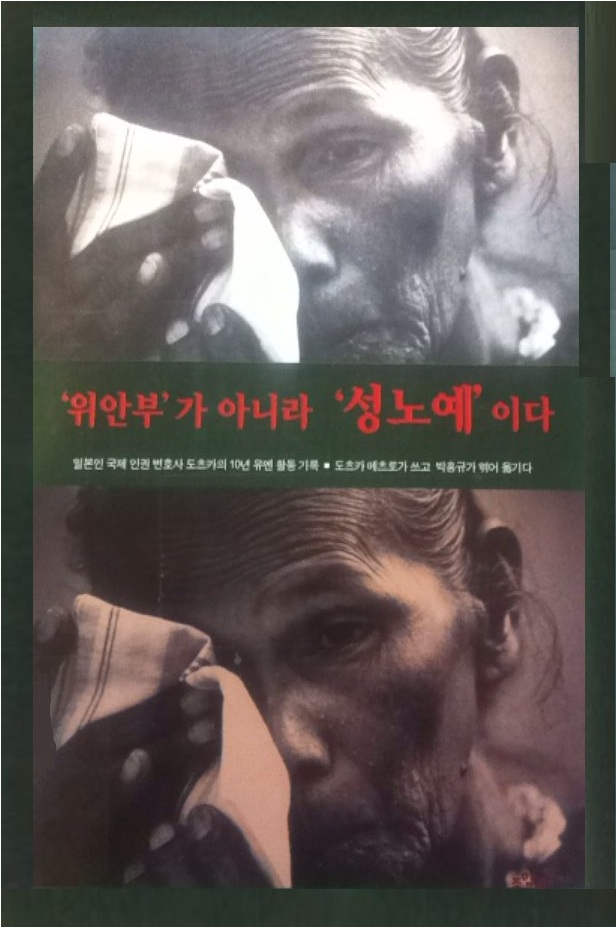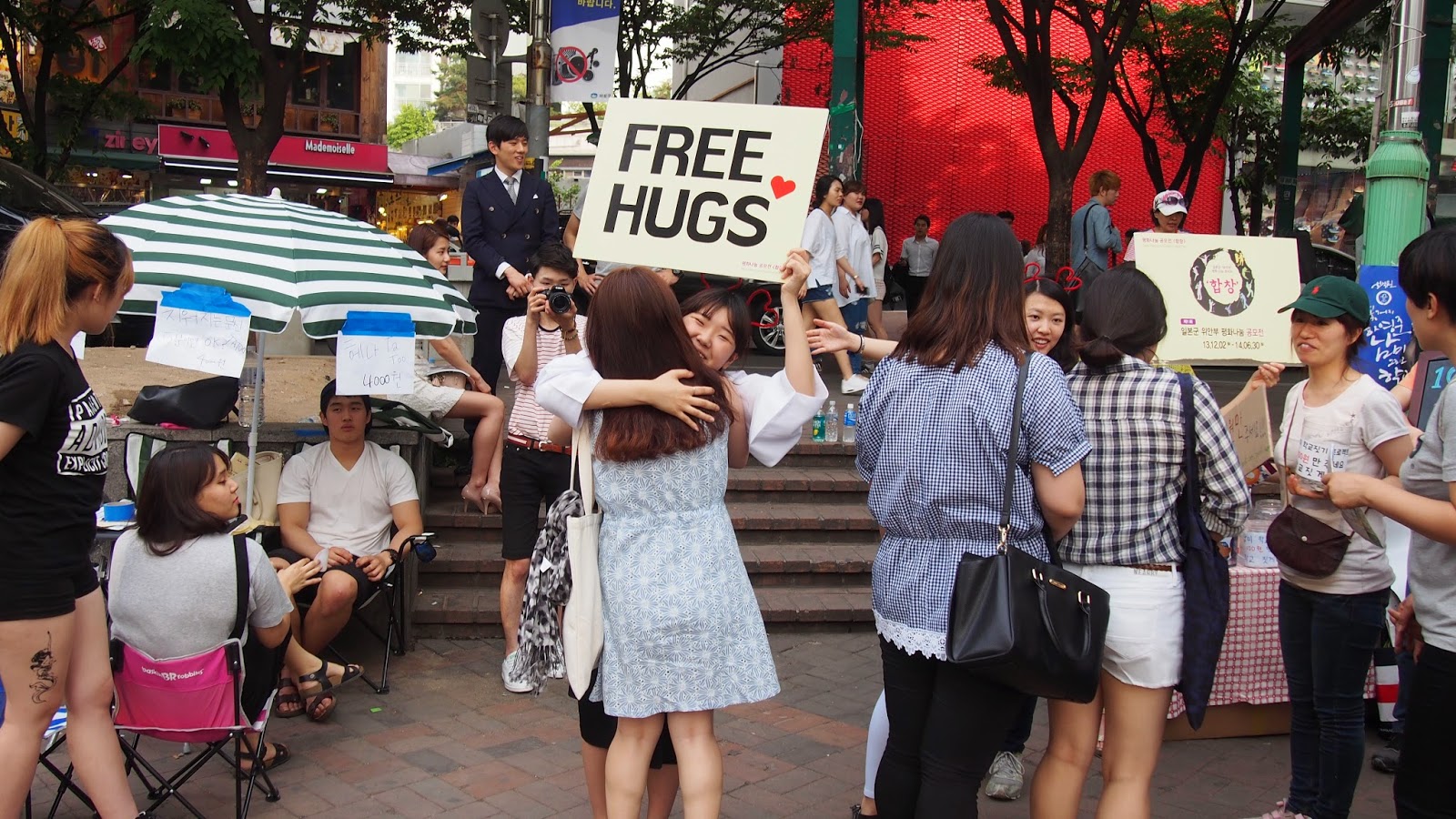This blog is dedicated to comfort women who were forced to work in military brothels during World War II. The truth should be unveiled and we want an official apology from the Japanese government.
2014년 6월 25일 수요일
Kono statement review of Japan : despicable denial
The Japanese government has released its official report of origins of 1993 "Kono statement." In conclusion, the Japanese government announced that Kono statement was not soley based on historical evidence. Rather, they concluded that the wording of the apology was the product of negotiation between Seoul and Tokyo.
This drew ire from Seoul and Beijing.
The cabinet secretary Yoshihide Suga insisted that Tokyo has no intention to change Kono statement and Tokyo will uphold the statement. Yes, Japan did not change the statement.
BUT let's take a look at Japan's conclusion:
"Kono statement was a product of negotiation between Seoul and Tokyo."
It is contradictory for the Japanese government to make such conclusion while Japan insisted to uphold the statement.
Japan did not investigate to seek the truth, rather Japan tried to hide the truth and withdraw their apology. If Japan had really intended to apologize to the victims, Japan would not have reviewed Kono statement.
From Japan's conclusion, it seems clear that Japan has no intention to apologize to the victims.
Abe's administration should remember that truth can never be hidden. Such distortions only make matters worse. It only shows Japan's bald-faced denial of history.
Reference: http://thediplomat.com/2014/06/japanese-report-on-the-kono-statement-draws-ire-from-seoul-beijing/
2014년 6월 23일 월요일
2014년 6월 15일 일요일
We won't forget the victims
“We won't forget the victims"
An increasing interest in contest 'Hapchang'
There is an increasing interest in contest 'Hapchang', co-hosted by the Ministry of Gender Equality and Family(Minister Cho Yoon sun) and the National Women's history Exhibition Hall.
On May 31, supporters of the contest held "Free hugs&Holding Hands" campaign. The campaign was aimed at increasing historical awareness to remember the victims. Supporters offered hugs and hand shakes to people.
18-year-old high school student Seo yeon Park, one of the participants, said "I hope people become aware of the comfort women issue from the "Free hug&Holding Hands" campaign.
On June 4, Hundreds of citizens joined the 1129th Wednesday demonstration with supporters holding 'Hapchang' signs.
23-year-old supporter Lee Hui Eun said "It is quite encouraging to see that many people participate in activities related to activities related to the victims of military sexual slavery by Japan."
Online is also active as offline promotion.
Spanish club of Yongin foreign language high school has translated information about comfort women to Spanish and posted on the official blog. Chinese club of Yongin foreign language high school will join soon. Information about comfort women, various activities performed by supporters are shared through social network service such as Facebook or Instagram.
The theme of Contest 'Hapchang' is peace, anti-war, consolation and the contest has 4 fields including music, art, performance and presentation. Any piece of work which can inform military sexual slavery by Japan to our nation and abroad can be submitted, and it can be submitted in foreign languages including English.
The contest is open to individual or groups of elementary, middle school, high school, university and graduate students or foreign students. The application form can be downloaded from the E-museum for the victims of Japanese military sexual slavery or the National Women's History Exhibition hall until the 30th of June.
2014년 6월 14일 토요일
Instagram event : With Grandmother, grammy, granny, hamoni
@hapchang2014
#halmoni
@hapchang2014 is holding an event via instagram.
Share your special moments with your granny.
The food your granny made for you,
Photos you took with your granny,
Bags your granny made...
Every photo is welcome!
How to join?
1. Upload your picture to your instagram
2. Tag @hapchang2014 #halmoni
3. Tell us your short story about your picture
I uploaded the photo which my granny took for me.
I love you
Granny
2014년 6월 12일 목요일
The 1130th Wednesday Demonstration
Every Wednesday, the Wednesday demonstration is held in front of the Japanese embassy in Seoul. Yesterday (11/06/2014) was the 1130th Wednesday demonstration, and it was my second time to join the Wednesday demonstration.
Unlike the last time(28/05/2014), halmonis (Korean word for "Grandmother") came to the demonstration. Lee Yong-su halmoni and Kim Bok-dong halmoni joined the demonstration.
Few days ago, another victim of military slavery by Japan passed away. Now there are only 54 victims alive in Korea. About 20 years ago, there were 234 former comfort women alive, but now there are only 54 victims alive. Unfortunately, halmonis are not healthy. Most of them are very old and they are not in good health. They are running out of time. Every second is a countdown.
Many people joined the demonstration including halmonis, citizens, Korean council, journalists, foreigners, and the late Bae chun-hui halmoni.
Lee Yong-su halmoni stood up in front of the people, cried out and sent her last message to the late Bae chun-hui halmoni. Some people started to cry when halmoni said Bae's name out loud. I had mixed feelings of sadness and anger. I felt so sad because Bae halmoni passed away before the Japanese government makes an official apology. When will the Japanese government make formal and sincere apologies to halmonis? It seems like the government is hesitating to make a formal apology. They should admit and apologize without hesitation.
After the protest, I approached Lee Yong-su halmoni and sent my message. I told her to cheer up and stay healthy. Halmoni held my hands with her warm hand and said she is happy because people, especially students, still remember the victims and fight for the victims. Oh, I was so moved. I approached her to cheer her up, but her warm words and her hands cheered me up instead. I can still feel the warmth of her hand.
Halmoni, I love you and thank you so much. I support you
R.I.P Bae Chun-hui
2014년 6월 9일 월요일
Another victim of Japan’s wartime sex slavery dies
A South Korean woman who was forced into sexual slavery for the Japanese imperial army during World War II died Sunday, another sign that time is running out for the aging victims to receive an apology and due compensation, a civic group said.
Bae Chun-hee died at age 91, according to the House of Sharing, which runs a shelter for victims of Japan’s sexual enslavement.
Her death leaves only 54 surviving victims of one of the most serious wartime crimes by Japan. Initially, 237 women were on the list of government-registered former sex slaves.
Source: http://www.koreaherald.com/view.php?ud=20140608000219
2014년 6월 7일 토요일
Free Hugs&Holding Hands event @Hongdae
On May 31st, team 'Hapchang' held a special event at 16:30-18:30 near Hongik University street, Seoul, Korea. We offered "Free Hugs&Holding Hands" and gave Heeum bracelet. The event was aimed at promoting contest 'Hapchang', spreading love, and raising social awareness about the victims of military sexual slavery. 17 staffs took part in this event and more than 200 citizens joined our event. Huge thank you for those who joined our event. Your simple gesture has brightened our day.
Personally, it was a very special experience because it was my first time to organize an outdoor event. At first I was afraid, but thanks to our wonderful staffs and kind citizens, our event was a huge success.
One of the best FreeHugs pics <3
There was also another meaningful event nearby, collecting 100 won to help build a school in Latin America. For the last thirty minutes, the two meaningful groups joined together.
Granny
We love you and we won't forget you!
Military Sexual Slavery by Japan
Comfort women, Professional camp Follower, Sex slaves, ...
Do you know what these words mean?
They look different, buy they all refer to the victims of Military Sex slavery by Japan.
I'd like to go further of each term and tell you the correct term.
1. Military Sex Slavery by Japan
Military brothels were built by Japanese imperial army during World War II (1930s~1945). 'Military sex slavery' is a legal term which refers to the war crime that enforced ladies to sexual slavery. By adding the word 'Japan', it states that it was occurred not by individuals but the Japanese military. That is why our contest name is a peace sharing contest regarding 'Japanese military sexual Slavery.'
In English, it is generally called 'comfort women,' but the official term is Military Sex Slavery by Japan.
2. Comfort women
What comes up to your mind when you hear the word 'comfort?' For me, it reminds me of my friends or family who are always by my side. I bet many people would feel the same. Actually, the word 'comfort' means to ease grief or distress of someone; or to console someone. It is such a warm and lovely word.
 ?
?
 ?
?
That is why the word 'comfort women' is controversial. Because 'comfort' has a warm and soft meaning, it is insufficent to address the terrible and tragic times that the victims had been through.
 !
!
The victims of Sex slavery by japan are often called as 'comfort women.'
But
Was it a warm 'comforting?'
I mean, did the victims 'comfort' the Japanese military by offering kind words or hugs?
NO
The victims were deceived, kidnapped, and raped several times. Do you think what destroyed their dream, hope, dignity and pride should be called 'comforting?' Some people point out that the word is from the Japanese military's point of view. Many people think the term is controversial.
But people use the word 'comfort women' because it is generally used, it was found in Japanese military document during World War II, and there are enough words to replace it.
3. Sex Slavery
Other words have been suggested to replace the controversial word 'comfort women'. 'Sex slavery' is one of the proposed words which illustrates the problem more specifically and it is an internationally recognized word. The word 'Military Sex Slavery by Japan' came after from the 'Sex slavery.'


(Totsuka Etsuro, Not 'comfort women' but 'Sex slves')
Hillary Clinton, a former United States Secretary of State, corrected the widely used term :comfort women" to "enforced sex slaves."

But the victims do not want to be called as 'sex slaves' because of its strong tone, we use 'comfort women,' an euphemisitical word.
3. Professional camp follower
This is also a commonly used term. Camp follower is a term used to identify civilians who follow camps. They do not fight but they provide services to the army such as cooking, laundering, liquor, nursing, sexual services and sutlery. (http://en.wikipedia.org/wiki/Camp_follower)


(Hungarian War photographer Robert Capa)
'Camp follower' is an inappropriate word for the victims of military sexual slavery by Japan. Most of the victims were enforced, which means it was totally against their will. However, 'war follower' means they 'volunteered.' for the war for some reasons. They did not volunteered but they were forced to. They were defrauded, sold for debt, their town was invaded by Japanese military etc. For these reasons, 'camp follower' is not a right term.
4. JungShin Dae (Voluntarily committing body corps for labor)
Some people call the victims as 'Jungshin dae'(meaning voluntarily committing body corps for labor). But they do not mean the same.
'Jungshin dae' was created to supplement the loss in labor during the war. In 1943, 'female labor Jungshin Dae' was announced and they created 'Korean female labor Jungshin dae.' Many Korean women were drafted and worked at war factories, shipbuilding plants, steel factories. They were underpaid and abused.
People thought Jungshin dae and the victims of military sex slavery were the same because, they were both enforced by Japanese military. But "labor Jung shin dae" refers to women who worked to supplement the loss in labor not
'female labor Jung shin dae.' And sexual slavery and labor abuse is different, so it is incorrect to use the term 'Jung
shin dae' instead of victims of sexual slavery.
To sum up,
'Military Sexual slavery by Japan' is an official term,
and 'sex slave' is more correct and internationally used term.
and 'sex slave' is more correct and internationally used term.
'Camp follower' is not an appropriate term
and 'Jungshin dae' is not a correct term.
After joining the Wednesday demonstration
On May 28th was the 1128th Wednesday demonstration. For those who want to know more about the 'Wednesday demonstration', click here. Our team joined the 1128th Wednesday demonstration.
The Wednesday demonstration is held on every Wednesday at noon in front of the Japanese embassy in Seoul. It is hosted by Korean council. Victims desperately want justice. It has past 22 years since the first demonstration in 1992.
You can take the Seoul metro line 3 to "Anguk" station and take exit 1 or exit 6. The Japanese embassy is within 10 minutes walking distance from the station. Anyone can join the Wednesday demonstration.
Many people joined the Wednesday Demonstration. There were high school students, university students, foreigners, photographers etc. Students were holding signs written "Bring dignity to the victims!", "Official apology!" "There is no future for a nation who has forgotten their history" and so on.
This is a statue dedicated to the victims of military sexual slavery by Japan. The victims had gone through terrible and miserable times when they were young as the girl from the statue. What can you see from her face? I can see her anger and sadness. With clenched fists on her laps, she is sitting and looking quietly toward the Japanese embassy.
If you take a close look at the statue, the girl's hair is not the same length all around. Her unevenly cut hair shows the abrupt break from her family and home. The bird sitting on her shoulder represents freedom and peace. The bird is also a spiritual bridge that links us and the victims who have already passed away. The chair next to her is open to anyone so that people can sit right next to her at the same position as the women being remembered. The shadow of the statue looks like an old lady. This symbolizes the victims today. Also, it symbolizes the past and present is still connected.
Some participants shared their thoughts. I was deeply impressed by their speech. I was moved by the Japanese ladies' speech. They also sang Korean traditional song "Arirang", and it was very touching.
It was meaningful to join the Wednesday Demonstration. There is still hope because many people still remember the truth. Young students and even foreigners remember the truth, and they raised their voice for the victims.
2014년 5월 18일 일요일
The Wednesday demonstration
The "Wednesday demonstration"
Have you heard about the "Wednesday demonstration?"
Every Wednesday, since January 1991, some of Korea's former comfort women began a protest in front of the Japanese embassy in Seoul. What they desperately wanted was a 'sincere' apology, an acknowledgement of the crime.
Every Wednesday, they have continued the 'Wednesday demonstration.'
On December 14,2011 was their 1000th times since the first demonstration.
Simultaneous protests were also held in Japan, but they were attacked by vocal opponents.
23 years past since then, yet Japanese government has not officially apologized.
At first, there were 234 Korean former comfort women alive.
But now,
only 55 are alive.
The Wednesday demonstration was listed in March 2002 in the Guinness Book of Records as the world's oldest rally on a single theme.
What is Murayama Statement?
Murayama statement is a statement that apologizes the damage and suffering caused by Japan. Below is the Murayama statement.
Statement by Prime Minister Tomiichi Murayama
"On the occasion of the 50th anniversary of the war's end"
(15 August 1995)
The world has seen fifty years elapse since the war came to an end. Now, when I remember the many people both at home and abroad who fell victim to war, my heart is overwhelmed by a flood of emotions.
The peace and prosperity of today were built as Japan overcame great difficulty to arise from a devastated land after defeat in the war. That achievement is something of which we are proud, and let me herein express my heartfelt admiration for the wisdom and untiring effort of each and every one of our citizens. Let me also express once again my profound gratitude for the indispensable support and assistance extended to Japan by the countries of the world, beginning with the United States of America. I am also delighted that we have been able to build the friendly relations which we enjoy today with the neighboring countries of the Asia-Pacific region, the United States and the countries of Europe.
Now that Japan has come to enjoy peace and abundance, we tend to overlook the pricelessness and blessings of peace. Our task is to convey to younger generations the horrors of war, so that we never repeat the errors in our history. I believe that, as we join hands, especially with the peoples of neighboring countries, to ensure true peace in the Asia-Pacific region -indeed, in the entire world- it is necessary, more than anything else, that we foster relations with all countries based on deep understanding and trust. Guided by this conviction, the Government has launched the Peace, Friendship and Exchange Initiative, which consists of two parts promoting: support for historical research into relations in the modern era between Japan and the neighboring countries of Asia and elsewhere; and rapid expansion of exchanges with those countries. Furthermore, I will continue in all sincerity to do my utmost in efforts being made on the issues arisen from the war, in order to further strengthen the relations of trust between Japan and those countries.
Now, upon this historic occasion of the 50th anniversary of the war's end, we should bear in mind that we must look into the past to learn from the lessons of history, and ensure that we do not stray from the path to the peace and prosperity of human society in the future.
During a certain period in the not too distant past, Japan, following a mistaken national policy, advanced along the road to war, only to ensnare the Japanese people in a fateful crisis, and, through its colonial rule and aggression, caused tremendous damage and suffering to the people of many countries, particularly to those of Asian nations. In the hope that no such mistake be made in the future, I regard, in a spirit of humility, these irrefutable facts of history, and express here once again my feelings of deep remorse and state my heartfelt apology. Allow me also to express my feelings of profound mourning for all victims, both at home and abroad, of that history.
Building from our deep remorse on this occasion of the 50th anniversary of the end of the war, Japan must eliminate self-righteous nationalism, promote international coordination as a responsible member of the international community and, thereby, advance the principles of peace and democracy. At the same time, as the only country to have experienced the devastation of atomic bombing, Japan, with a view to the ultimate elimination of nuclear weapons, must actively strive to further global disarmament in areas such as the strengthening of the nuclear non-proliferation regime. It is my conviction that in this way alone can Japan atone for its past and lay to rest the spirits of those who perished.
It is said that one can rely on good faith. And so, at this time of remembrance, I declare to the people of Japan and abroad my intention to make good faith the foundation of our Government policy, and this is my vow.
피드 구독하기:
덧글 (Atom)



























